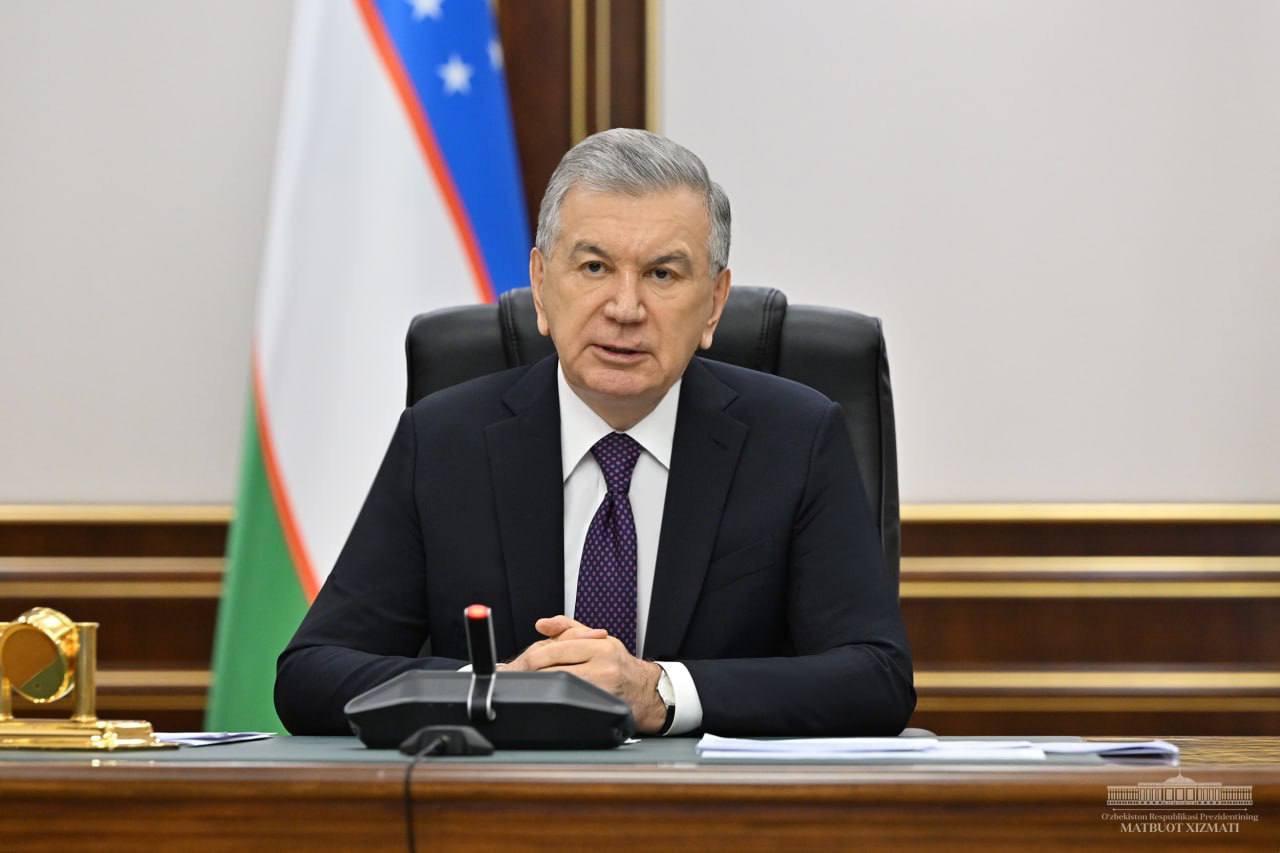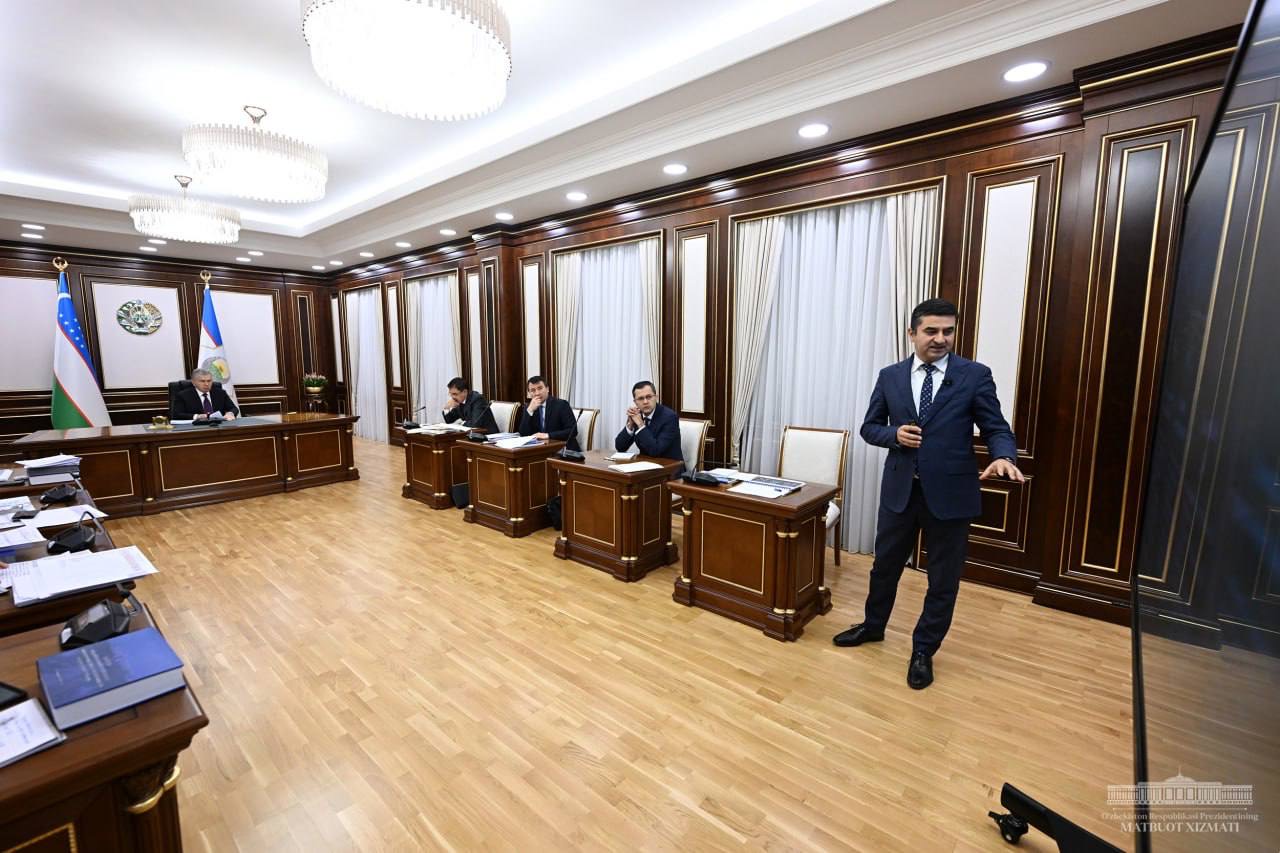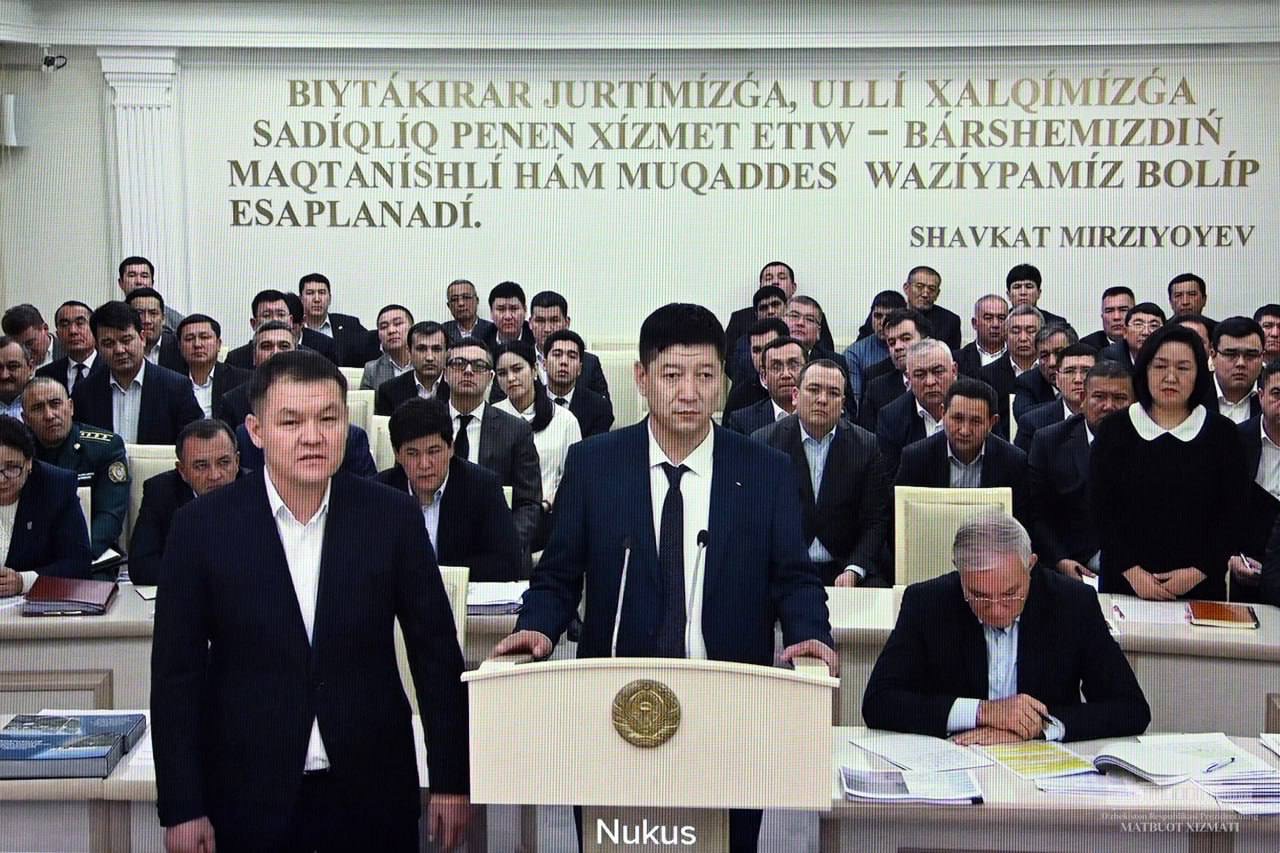President Shavkat Mirziyoyev convened a meeting on December 23, to discuss the priority tasks for 2025 aimed at expanding investment opportunities, boosting employment, and fostering growth in the Republic of Karakalpakstan.

The year has been significant for the region, with several key initiatives launched. These include new industrial enterprises, tourist resorts, energy facilities, and an IT park. A notable achievement was the inauguration of a 423-meter automobile and railway bridge connecting Karakalpakstan with Khorezm, reducing transportation distances by 180 kilometers for both freight and passengers.
Additionally, a 240-kilometer section of the Kungrad-Beinov highway, costing $323mn, has been completed, which is expected to increase annual transit services by $200mn. The electrification of the Miskin-Nukus railway, spanning 196 kilometers, will begin soon as part of ongoing infrastructure improvements.
Over 50 privileges and concessions have been granted in the fields of industry, entrepreneurship, and infrastructure. Notably, Karakalpakstan is the only region in Uzbekistan where land for investment projects can be directly allocated. These efforts aim to transform the region into a key hub for economic growth.
In a recent open dialogue with entrepreneurs held in Nukus, President Mirziyoyev highlighted the region's vast untapped potential. Foreign investors and experts recognize that Karakalpakstan offers significant opportunities, particularly in agriculture, tourism, and services, with an estimated $2.5bn in potential.

Agriculture in the region is also undergoing improvements. While an average of 28 centners per hectare are harvested from 87,000 hectares of cotton, experts recommend reducing low-yielding cotton areas and replacing them with feed crops and sesame. This change could yield UZS 6.5 trillion ($503mn) worth of meat and milk and generate $500mn from sesame exports, all while conserving water resources.
Tourism also holds promise, especially in Muynak, where tourism projects worth at least $1bn could generate income for 5,000 residents. The region's rich cultural and natural heritage, including over 200 attractions such as the Savitsky Museum and the Chilpyk monument, offers vast potential for ethno and ecotourism. These projects could attract up to 3mn tourists annually.
At the meeting, the president emphasized the need for local officials to take greater personal responsibility and drive the development of these sectors. Entrepreneurs should be shown the region's potential, with support for projects that will create new jobs, increase exports, and improve the standard of living for residents.
Plans for next year include $3.1bn in investments, of which $500mn will be directed to regional projects. However, the President stressed the importance of raising this figure, with the goal of mobilizing an additional $1bn for regional development. This would see the launch of 120 enterprises, 85 of which will reach full capacity, creating 150,000 jobs and reducing the unemployment rate to 5.4%. Moreover, measures will be introduced to reduce poverty by 7.6%, benefiting 20,000 vulnerable families.

In the energy sector, Karakalpakstan is poised to benefit from the construction of a 1-gigawatt wind power plant, part of a broader plan to generate 9.3 gigawatts of wind energy, providing 33bn kilowatt-hours of electricity annually. The region also offers strategic advantages for energy-intensive industries such as metallurgy, chemistry, and building materials.
In agriculture, plans are in place to establish 3,000 hectares of industrial orchards and vineyards, plant sesame on 31,000 hectares, and cultivate mung beans on 22,000 hectares for export. A three-year program to plant licorice on 30,000 hectares will further diversify the region’s agricultural output.
To ensure the efficient use of these opportunities, a project office will be established in Karakalpakstan to oversee the development of agriculture, industry, and tourism. This office will analyze growth points in each district, help optimize land use, and design projects for processing raw materials and agricultural products. It will also propose new tourism destinations and infrastructure projects.
Officials have been tasked with closely monitoring investment projects, employment plans, and export targets. To aid in the development process, reputable foreign experts will be engaged to formulate tailored development strategies for each district.
Follow Daryo's official Instagram and Twitter pages to keep current on world news.
Comments (0)